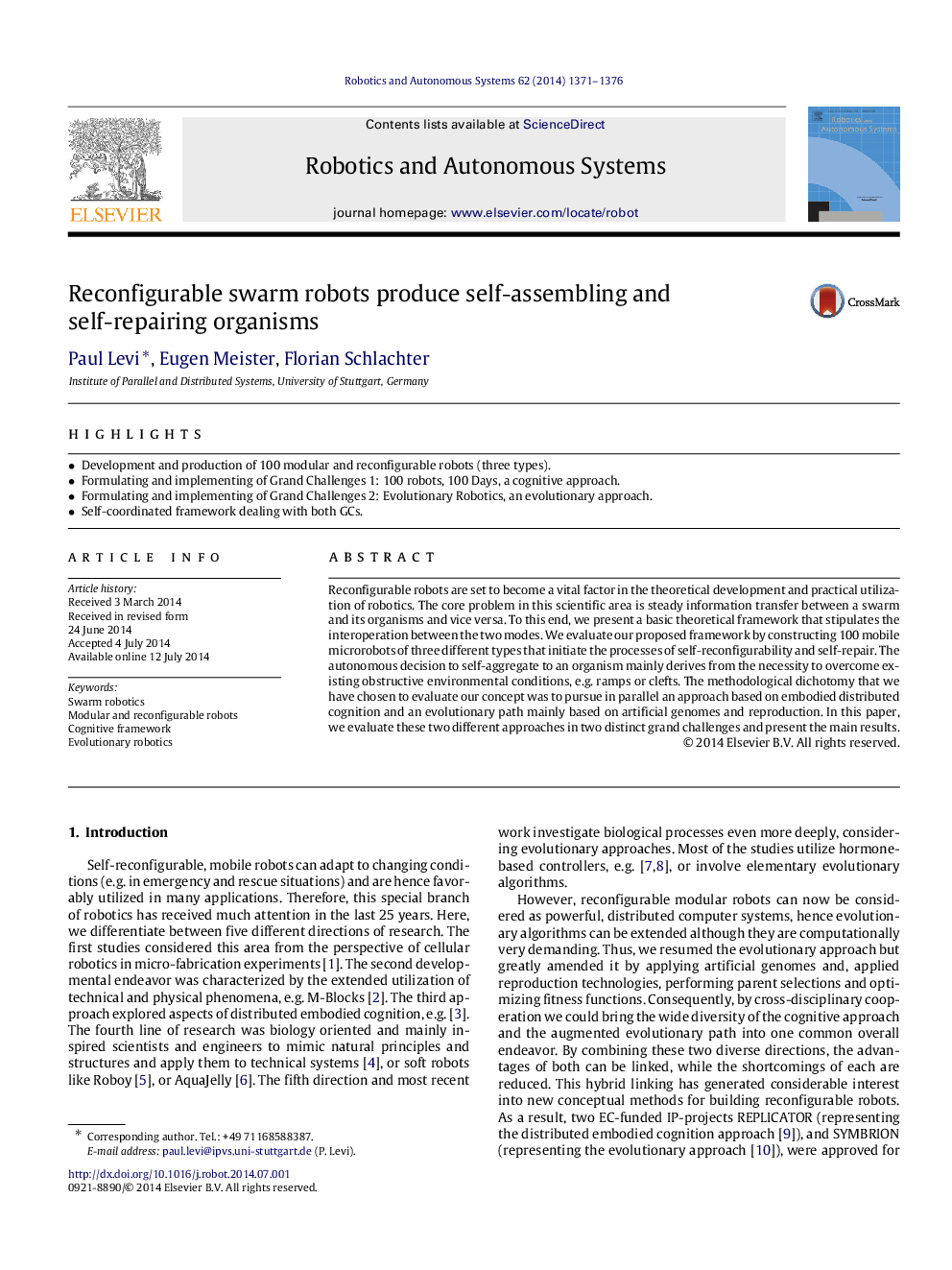| Article ID | Journal | Published Year | Pages | File Type |
|---|---|---|---|---|
| 10326772 | Robotics and Autonomous Systems | 2014 | 6 Pages |
Abstract
Reconfigurable robots are set to become a vital factor in the theoretical development and practical utilization of robotics. The core problem in this scientific area is steady information transfer between a swarm and its organisms and vice versa. To this end, we present a basic theoretical framework that stipulates the interoperation between the two modes. We evaluate our proposed framework by constructing 100 mobile microrobots of three different types that initiate the processes of self-reconfigurability and self-repair. The autonomous decision to self-aggregate to an organism mainly derives from the necessity to overcome existing obstructive environmental conditions, e.g. ramps or clefts. The methodological dichotomy that we have chosen to evaluate our concept was to pursue in parallel an approach based on embodied distributed cognition and an evolutionary path mainly based on artificial genomes and reproduction. In this paper, we evaluate these two different approaches in two distinct grand challenges and present the main results.
Keywords
Related Topics
Physical Sciences and Engineering
Computer Science
Artificial Intelligence
Authors
Paul Levi, Eugen Meister, Florian Schlachter,
